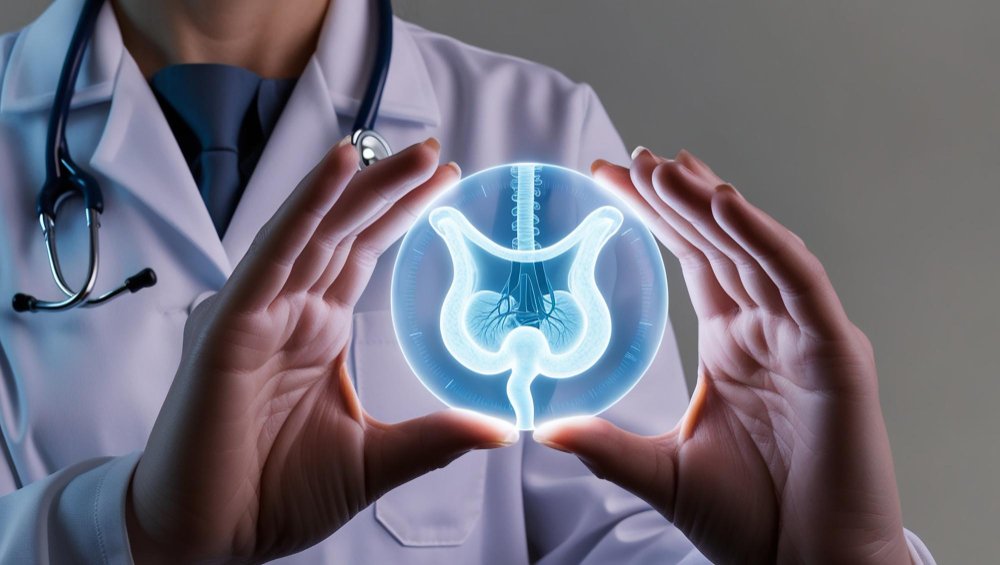Urinary Reflux Surgery
Safe surgical solutions for your health with accurate diagnosis, safe intervention! NY Health is always ready with its professional team.
More information
Feel free to contact us for more information or support with your questions. We will be happy to help you.
Get in touch!Customer Service
+90 532 100 66 78

NY Health
URINARY REFLUX SURGERY
Urinary Reflux Surgery (Vesicoureteral Reflux Surgery)
Stop the reverse flow of urine to protect your kidneys
Urinary reflux (vesicoureteral reflux - VUR) is the backflow of urine from the bladder to the kidneys.
This can cause recurrent urinary tract infections and kidney damage, especially in children,
may cause high blood pressure and kidney failure in the future.
In patients who do not respond to medical treatment, who are at risk of kidney damage or where infections recur frequently
surgical intervention becomes necessary in cases. At NY Health Consulting, age and reflux
We plan the most accurate surgical method suitable for its degree and offer success-oriented process management.
Who Has Urinary Reflux?
Due to congenital urinary tract development disorder in children
In adults, bladder pressure problems, urinary tract strictures or previous due to infections
More common in girls than boys
Risk increases if there is a family history of VUR
When is surgery necessary?
If grade 3 and above reflux is detected
- Recurrent urinary tract infections despite preventive antibiotics
- Loss of function, scarring or damage to the kidney
- If bladder emptying is normal but reflux persists
- If the patient/parent wants a permanent solution instead of medical treatment
Surgical Methods
Endoscopic (Closed) Intervention - Subureteral Injection (STING/Hit)
- A special substance is injected into the ureteral orifices by entering the bladder with an endoscope
- Creates a valve effect to stop reflux
- It is a simple, short and painless procedure
- Today, it is the first preferred method especially for mild-moderate reflux
- Usually done on a daily basis
Open Antireflux Surgery (Ureteroneocystoanastomosis)
- It is applied in advanced reflux or after endoscopic failure
- The place where the ureter enters the bladder is reshaped, reflux is prevented by opening a tunnel under it
- Has a high success rate
- Usually 2-3 days hospitalization is sufficient
Laparoscopic / Robotic Surgery
- Same principle as open surgery, but with smaller incisions
- Especially preferred in centers using advanced technology
- Provides aesthetic advantage, shorter recovery time
Operation Process
- Anesthesia: Performed under general anesthesia
- Duration: 30 minutes to 2 hours, depending on the method
- Hospital stay: Same day for endoscopic procedure, 1-3 days for open/laparoscopic method
- Urinary catheter: Usually removed after 1-2 days
-Recovery: Return to daily life in 5-7 days
Process Management Suitable for Health Tourism Process Management Suitable for Health Tourism
- - Remote pre-assessment with reports and images
- - Appropriate surgery is determined according to factors such as the degree of reflux, age and kidney function
- - Urodynamics, scintigraphy and cystography procedures are planned if necessary
- - Hospital, accommodation, companion support and post-op follow-up are organized by professional teams
- - Postoperative follow-ups and radiological controls can be maintained with the digital system
Urine reflux can be the silent enemy of your kidneys. It is possible to eliminate this risk with early diagnosis and correct surgery.
You can contact us for a personalized surgical plan and process management for you or your child.
Frequently Asked Questions
There may be a risk of recurrence in the endoscopic method, but repeated applications are possible. The success rate in open surgery and laparoscopic methods is over 95%.
Yes, it is. It is widely and safely applied especially in children over 1 year of age. Patient-specific planning is made.
Usually no. Antibiotic prophylaxis is discontinued after successful surgery.
Permanent damage to the kidneys, hypertension and kidney failure can develop.
